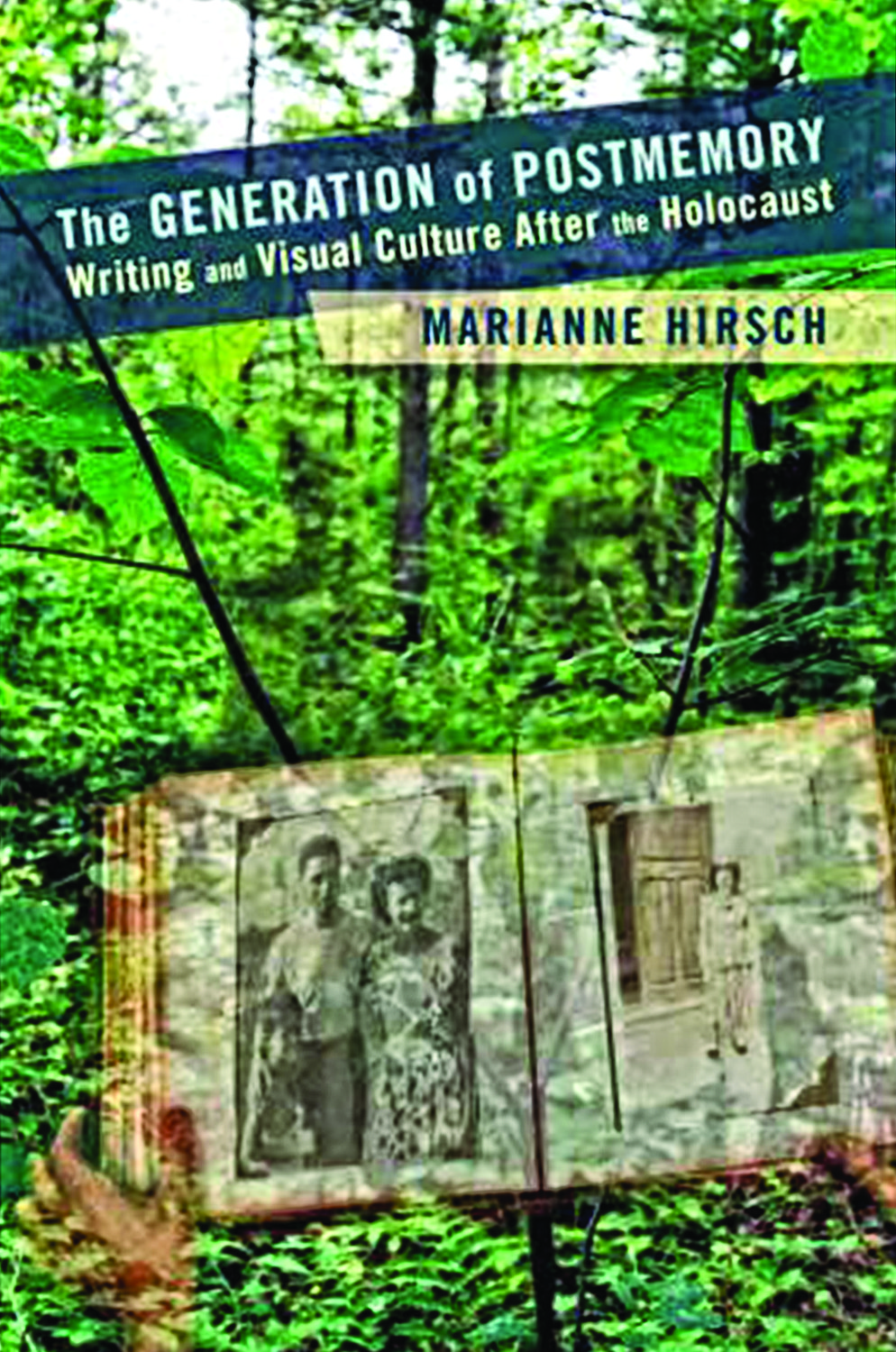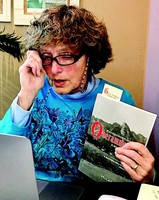The power of ‘postmemory’
This is the fourth article in a series leading up to the 80th anniversary of Kristallnacht.
I had the good fortune to hear Marianne Hirsch speak last year at the Pembroke Center Archives Conference at Brown University. Her talk introduced me to the term “postmemory,” which she came to in the course of her academic work and personal experience as the child of Jewish survivors from Romania.
Hirsch began to understand that children of survivors of catastrophic events, and those of us who identify closely with the memories of people who have experienced hatred, enslavement, torture and murder, can absorb these experiences with such immediacy that they seem as vivid as anything in their lives. At the same time, she is careful to say that these are not our experiences, but those of other people.
Only after I met Hirsch did I see how my own writing reflected memories I’d heard from family and friends. I came to realize that I had incorporated into my novel, “Eavesdropping in Oberammergau,” my mother-in-law’s story of losing her mother, when she was 8 years old, in the 1918 influenza epidemic. I adapted her story into the fiction I was creating. I had not understood how much her story had become a part of my psyche.
That is just one of the many insights that Hirsch helped me to uncover – how memory, postmemory, has worked into my creative life. In a way, I was trying to recover and honor something lost.
To be able to identify, as I did in my novel, with characters who were made up or fictionalized, who had lived through the days that led to Kristallnacht and lived through the “Night of Broken Glass,” is to be awakened to the dangers of present-day hate speech.
At the conference, I learned that Hirsch was part of our Providence community during her first years in this country. In preparation for this article, my fourth on the subject of Kristallnacht, I interviewed her to discover her memories as an immigrant child living in Providence. We are a small community, and people may remember her.
Hirsch was born in Romania in 1949, to parents who had lived through the war years in Cernauti (formerly Czernowitz), now Chernivtsi, Ukraine. Secular Jews, her parents were fortunate to make it through the years of Romanian collaboration with Nazi Germany. Their stories of survival in the ghetto and wearing the yellow star are the vivid postmemories she retains, postmemories that were grounded by a trip she took there as an adult, along with her parents. This trip resulted in her book, co-authored with her historian husband Leo Spitzer, “Ghosts of Home: The Afterlife of Czernowitz in Jewish Memory.”
After years of living in Communist Romania after the war, Hirsch’s parents were eager to emigrate to the West. They were able to obtain a visa for Vienna. From there, they hoped to join cousins in New York City, but they were unable to obtain that sponsorship.
Instead, they received an affidavit through the help of the New York Hebrew Immigrant Aid Society and its connections to Jewish Family Service of Rhode Island. (Her description of how her parents had to take a magnifying glass to a U.S. map to find Rhode Island made me laugh.)
Hirsch describes JFS’ assistance as life-saving. Her family was set up with an apartment and furniture and given guidance about the Providence schools.
Though she had just finished seventh grade in Vienna, her father felt she could skip eighth grade and go into ninth grade. They were told that Classical High School offered a superior education, but the school felt that her English language skills were not up to the work, and recommended that she attend ninth grade at Nathan Bishop. By the 10th grade, Hirsch had proven herself, and she was accepted at Classical. She graduated in the Class of ’66.
Hirsch lived at home while she attended Brown University, where she earned a B.A., an M.A. and Ph.D. She is now a professor of English and comparative literature at Columbia University and a professor in the Institute for Research on Women, Gender, and Sexuality.
To read Hirsch’s work is to understand how her theory of postmemory evolved. She is particularly sensitive to the way women were left out of so many stories about the Holocaust. She is also aware of how Holocaust stories are often seen as overshadowing the traumas experienced by so many others, including African-Americans, Cambodians, Armenians and Rwandans.
Hirsch’s book, “The Generation of Postmemory: Writing and Visual Culture After the Holocaust” (Columbia University Press, 2012), offers an important reason to remember the past:
“In attempting to look back to the past in order to move forward toward the future, [her book] asks how memory studies, and the work of postmemory, might constitute a platform of activist and interventionist cultural and political engagement, a form of repair and redress, inspired by feminism and other movements for social change.”
Rhode Island has enacted legislation that requires public schools, for Grades 6-12, to educate students on the genocides of the past century, naming in particular the Holocaust and the Cambodian and Armenian genocides. This work will be challenging, but it is part of a reminder to all of us to stay committed to “never again.”
I believe that remembering, whether from direct experience or through postmemory, is a powerful precursor to that very commitment: NEVER AGAIN.
HILARY SALK is the author of “Eavesdropping in Oberammergau,” a novel that draws on her experiences as an American Jewish girl living with her parents in Germany three years after the Holocaust. Salk lives in Providence and Narragansett. Reach her at hilarysalk@hilarysalk.com.











